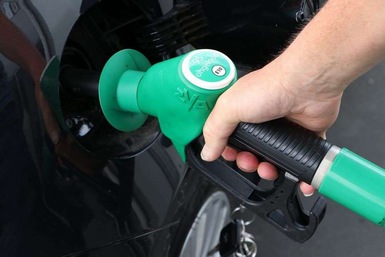Call Us: 01304 831 222
News
A new type of unleaded petrol, known as E10, which could damage hundreds of thousands of older cars is set to become the UK’s standard petrol by the end of 2021.
The Department for Transport held a consultation last year into introducing the new fuel, with a view to making it the regular unleaded - usually labelled 95 octane - at forecourts in 2021. While the DfT is yet to make a formal announcement, the Petrol Retailers Association (PRA) said it expected the roll-out to go ahead before the end of this year.
The PRA’s spokesman Gordon Balmer told the Express: “By the middle of last year the outcome of the consultation was revealed and if the introduction goes ahead as proposed there will be a mandated-by-Government rollout sometime towards the end of this year.”
Mr Balmer also warned that the E10 petrol wasn’t suitable for all cars and drivers with models older than 10 years could face higher fuel bills as compatible E5 petrol is offered only as more expensive “super unleaded” (98 octane).
Here’s everything you need to know about E10 petrol and what its rollout means for you.
What is E10 petrol?
E10 petrol is unleaded petrol which contains up to 10 per cent bioethanol, taken from renewable sources such as sugar beet.
Current regular unleaded contains up to five per cent ethanol but under the plans, this will be rebranded as “super unleaded” and replaced by E10 as the standard unleaded at the pumps.
Why is E10 petrol being introduced?
The Government says the introduction of E10 petrol will help reduce transport-related CO2 emissions.
E10 is expected to replace E5 as the standard 95 RON unleaded fuel
Fuels with higher bioethanol content produce less CO2 when burned and the DfT says that switching to E10 as standard will reduce a car’s CO2 emissions by around two per cent.
It estimates that changing to E10 will cut the UK’s CO2 emissions by 750,000 tonnes a year - equivalent to removing 350,000 cars from the road.
Will E10 petrol cost more?
The DfT says that the use of E10 should reduce petrol prices but will end up costing drivers more as its lower energy content means cars will be less efficient.
Its impact assessment states: "Introducing E10 will add to fuel costs paid by motorists.
Moving from E5 to E10 is estimated to reduce pump price petrol costs by 0.2 pence per litre. However, as the energy content of the fuel will also decrease, motorists will have to buy more litres of fuel. Overall fuel costs for petrol cars are therefore estimated to increase by 1.6 per cent as a result of moving from E5 to E10."
Is E10 suitable for all cars?
All cars made from 2011 onwards can run on E10 petrol without any problems.
However, the RAC estimates that around 600,000 cars, including classic cars and more modern models are not compatible with the new fuel. The DfT says that of these, around 350,000 are in daily use.
Most of the affected cars are older classic models but some models built between 2000 and 2010 are also vulnerable to damage. This includes models from major brands such as Audi, Ford, Mercedes, Toyota and Volkswagen up to 2008.
How do I know if my car is E10 compatible?
If your car was built in 2011 or later it is E10 compatible.
Most cars built since 2000 are also E10 compatible but if in doubt, you can check your car and engine using this list from the European Automobile Manufacturers Association (ACEA).
All cars built since 2011 are E10 compatible but some built between 2000 and 2010 could face problems
What can I do if my car isn’t E10 compatible?
If your car isn’t E10 compatible you should continue to use E5 unleaded.
This will be sold as super unleaded (98 RON) at forecourts where two grades of petrol are currently sold. However, at filling stations with only one grade of petrol, this will become E10 except in remote areas.
The DfT has said it will protect supply of E5 fuel for at least five years.
What happens if I put E10 petrol into an incompatible car?
E10 fuel will not cause immediate damage to your car but prolonged use could cause long-term problems.
Increasing the ethanol level in petrol poses two main risks to older cars. The first is that as a solvent, it can cause degradation of rubber and plastic components, such as hoses, seals, fuel lines and filters. It also absorbs water from the atmosphere, potentially leading to condensation and corrosion in fuel tanks, lines and other metal components.
Classic car insurance brand Hagerty has warned that the change could cause significant damage to the fuel system and engine of older cars, with the RAC advising that the fuel isn’t suitable for any car built before 2002.
The ACEA has also advised that if you misfuel a car with E10 you should contact your dealer, the vehicle manufacturer or roadside assistance provider who may advise that the fuel tank be drained.

Forecourt Finder
Up to 6000 sites across the UK including Motorways and trunk roads.
Click "Go" to search by postcode now.